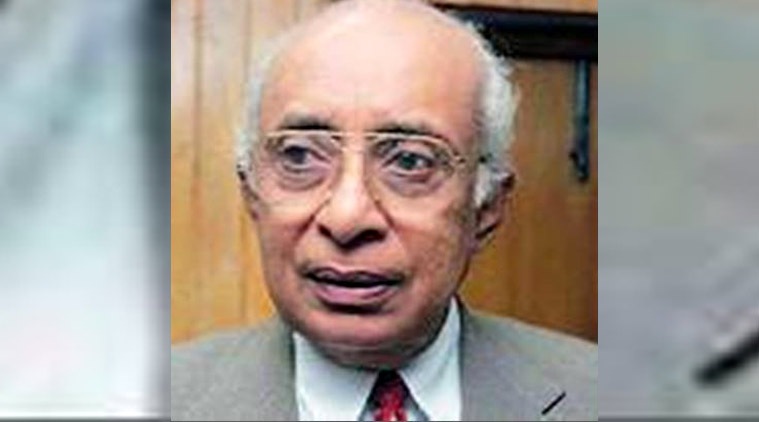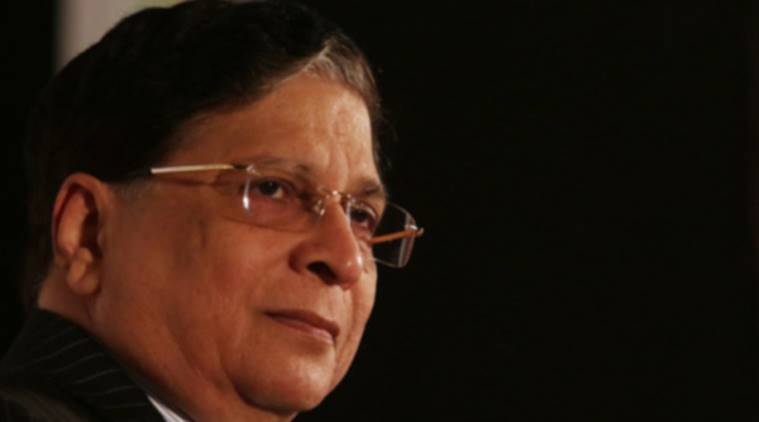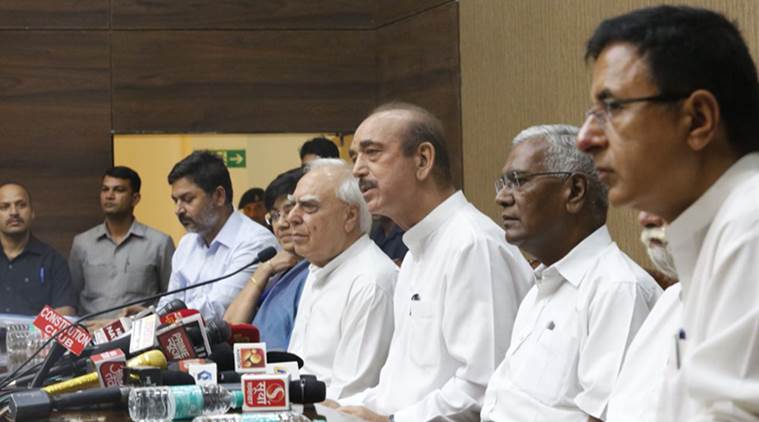 Former Supreme Court judge Justice K T Thomas.
Former Supreme Court judge Justice K T Thomas.
Former Supreme Court judge Justice K T Thomas on Friday said allegations listed by Opposition parties in their motion seeking removal of Chief Justice of India Dipak Misra were not fit to be called allegations.
“Of the allegations levelled against him, only one relates to his performance as CJI — allotment of cases. But that cannot be an allegation. That has been the case throughout the history of the Supreme Court,” Justice Thomas told The Indian Express. He added that the other charges against the CJI relate to the period before he became CJI. “Those should have been looked into then,” he said.
The retired judge also sounded critical about the allegations that some judges were kept out of hearing certain cases. “Such claims by judges of Supreme Court are very silly and childish. I’m really sorry and ashamed. Do they mean to say that some judges should be allotted less important cases? Every case is important and is decided by the Supreme Court. The Chief Justice of India will decide the allotment. I am really hurt having served this institution for a long period”.
Former CJI K G Balakrishnan pointed out that charges of misbehaviour were not enough to seek removal of a judge, but it has to be “proved misbehaviour”.
“It’s not easy to establish. In India, we do not have any precedent on the depth of evidence required to establish what is proved misbehaviour,” said Balakrishnan who had recommended impeachment of Justice Soumitra Sen of the Calcutta High Court.
 Chief Justice of India Justice Dipak Misra.
Chief Justice of India Justice Dipak Misra.
He added, “I’m only bothered about the institution and deeply pained by the developments. It is very disturbing for anyone who has been or is associated with the judiciary”.
Justice R M Lodha, who retired as CJI in September 2014 termed it a “sad day”. He said the developments were “unprecedented and extremely sad” and hoped that “such a situation never comes again”.
Asked about charges that the move was politically motivated, he said it was “very difficult for me to comment if its politically motivated but yes, ultimately it becomes a political exercise because it is the political parties which will act on it.”
He added, “Fairness (of the motion) will be decided by the legislature, because it is a legislative process. Constitution does not say what is proved misbehaviour or incapacity, but legislature will take a call on it.”
Asked what comes after the notice, former Lok Sabha Secretary General P D T Achary said, “There is nothing in the law which lays down any time-limit within which the Rajya Sabha Chairman or the Lok Sabha Speaker, as the case may be, has to accept or reject it. They can take some time to examine material and consult experts. They can take a reasonable time”.
 Opposition leaders at a press conference in Delhi after their meeting with Rajya Sabha chairman Venkaiah Naidu. (Express Photo by Anil Sharma)
Opposition leaders at a press conference in Delhi after their meeting with Rajya Sabha chairman Venkaiah Naidu. (Express Photo by Anil Sharma)
He said the law was also silent on what could be done if the Rajya Sabha Chairman decides to sit on the notice. “However, since a motion is provided for in statute, he has to act in accordance with the statute,” Achary added.
“He may admit or reject it, there is no middle way,” he pointed out, and asked “where these two options are there, why would anyone sit on it?”.
Constitutional expert Subhash C Kashyap pointed out that in practice, no Chairman sits on the notice.
Achary said that if the Rajya Sabha Chairman were to reject the notice after examining records and consulting experts, those who moved it have the option to approach the Supreme Court.
“Unlike a motion moved under the Rules in the House where the presiding officer of the House has the final say, this motion has statutory authority,” he said. Achary opined that if it is rejected, a judicial review is possible.
Kasyap, however, disagreed. “These are affairs of the House and the judiciary will not be able to interfere.”